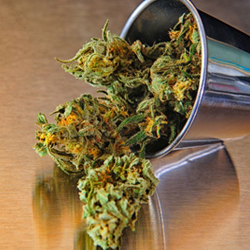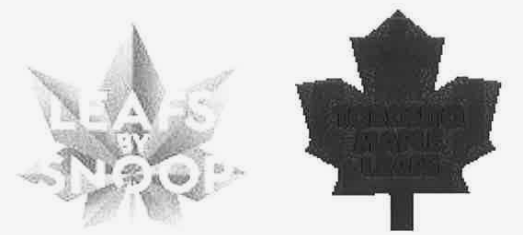Half Baked: The Brave New World of Branding Weed
Intellectual Property Attorney
by Tal Grinblat
(818) 907-3284
In last week’s election, California voters passed Prop 64, which means recreational marijuana can be sold and used by persons over 21 within the state.

But don’t get excited about the gold rush just yet. Recreational users won’t be able to buy from medical dispensaries without a prescription; and cultivators won’t be able to sell marijuana until they get licensed. Barring the unforeseen, we’re looking at January 2018 for the first legal sales transactions of recreational marijuana.
Still, entrepreneurs are examining the legal concerns related to the recreational marijuana trade now; and some have been setting up for voter approval long before the November 8th vote.
Rapper Snoop Dogg for example, is already running into problems, including an opposition in the Trademark Trial and Appeal Board over his application for Leafs by Snoop. He filed the application in November 2015 with the U.S. Trademark and Patent Office (USTPO).
Leafs by Snoop is a company whose intended mark is a 7-pointed green leaf. The mark is intended to be used on cigarette lighters, clothing and hemp products, and is already being used on marijuana products in Colorado.
The company opposing the application is Maple Leaf Sports & Entertainment (MLSE), parent company of the National Hockey League’s Toronto Maple Leafs. MLSE filed an opposition in the U.S. Trademark Office on November 7, 2016 claiming there is a risk customers will confuse Snoop’s mark with their own. Below is each company’s trademark for comparison. See: Trademark Trial & Appeal Board Opposition.
California Pot Approval Up in Smoke?
No matter what individual states decide regarding recreational or medical marijuana use, cannabis is still a Schedule I illegal drug in the eyes of the Feds. Since the USPTO is a federal agency, they refuse registering marks that identify illegal products and services. The agency generally assumes an applicant’s use of a mark will be for legal goods and services, unless:
(1) a violation of federal law is indicated by the application record or other evidence, such as when a court or a federal agency responsible for overseeing activity in which the applicant is involved, and which activity is relevant to its application, has issued a finding of noncompliance under the relevant statute or regulation, or
(2) when the applicant’s application-identifies goods or services that are a per se violation of a federal law.” In re Brown, 119 USPQ2d at 1351; see also Kellogg Co. v. New Generation Foods Inc., 6 USPQ2d 2045, 2047 (TTAB 1988).
So what are the ways companies may obtain trademark rights in marijuana related products?
from MLSE Notice of Opposition
Intellectual Property Protections for Pot Products
Entrepreneurs who want to cash in on cannabis have a few options for now.
1. The best way to protect a brand nationally, is through trademark registration at the USPTO. Though it is currently not possible to trademark product names directly related to marijuana, it is possible to gain approval if you follow the example of the Dogg:
Sell products besides marijuana – parsley, sage, rosemary & thyme, for example, and come up with a catchy name and logo that encompasses everything. While a company would not get protection specifically for marijuana products, it could get protection for tangential legal products it sells.
2. Register the trademark in states where marijuana sales are legal. In California, the Secretary of State’s Trademark Unit handles trademark registrations.
3. Use the mark. To obtain common law trademark rights, a retailer need only use their name, such as through sales in an online store (no, marijuana can’t be sold online, but other products can be), on packaging, and in advertising. No formal registration is required to obtain common law rights. Unfortunately, common law rights are limited, in that trademark rights are only obtained in geographies where the retailer has actually used the mark.
Accordingly, a cannabis retailer in California may have a difficult time enforcing its trademark rights outside the state, should a retailer in another state decide to use the same or similar branding.
None of these three protection methods are fool-proof. The first is the best method as it provides nationwide rights, but barring that, a combination of options two and three will also afford some protections and are better than nothing. As for Snoop Dogg…we’ll just have to wait for the smoke to clear to see if Leafs by Snoop gets crushed by the opposition.
Tal Grinblat is an Intellectual Property Attorney and Shareholder at our firm.

